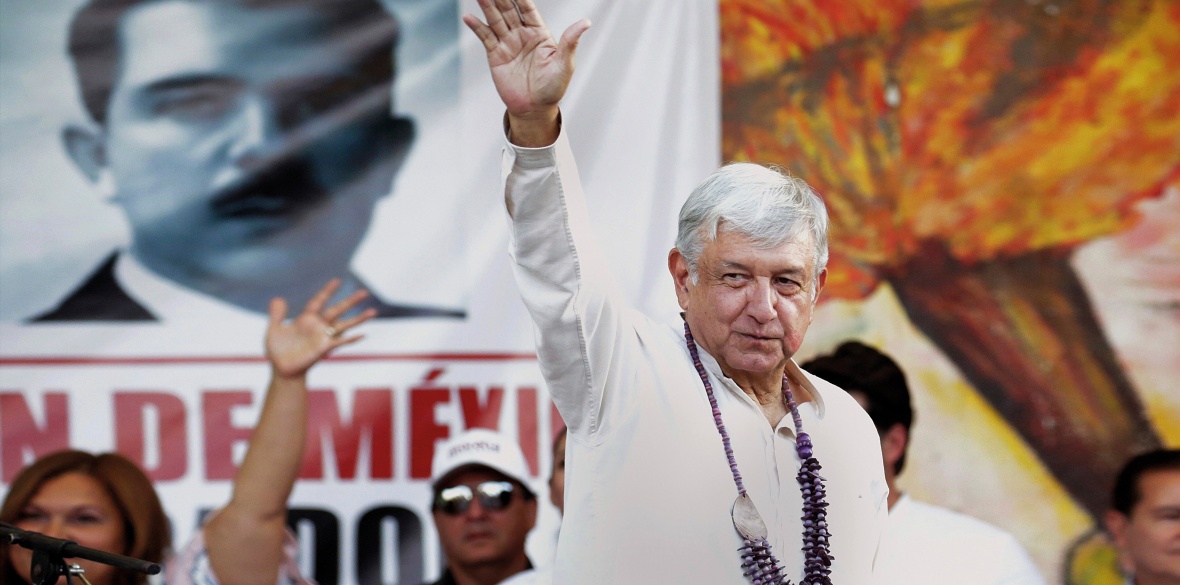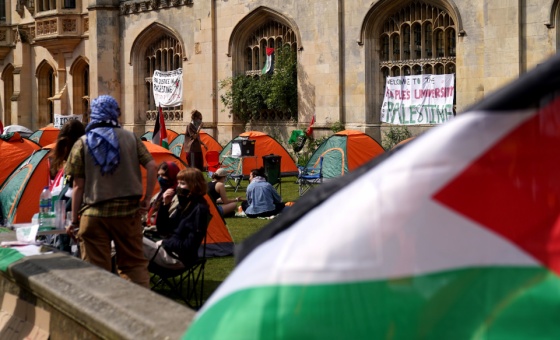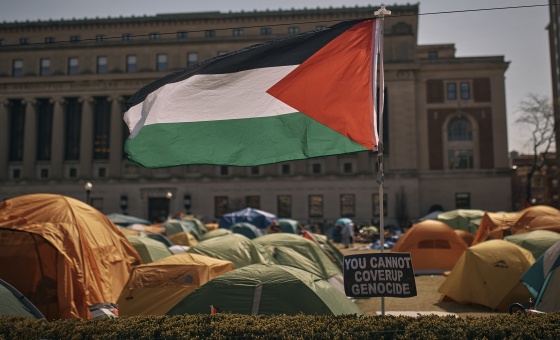This is the last article you can read this month
You can read more article this month
You can read more articles this month
Sorry your limit is up for this month
Reset on:
Please help support the Morning Star by subscribing here
EVER heard of a country where electoral fraud favours the opposition? Try Mexico, with its corrupt and aberrant Electoral Commission (National Electoral Institute, INE by its Spanish initials).
Political polarisation has been growing in Mexico over several aspects of Amlo’s Fourth Transformation — national control of oil and electric power, reform of a notoriously corrupt judicial system, bringing delinquent old-regime politicians to justice, ending false subcontracting and ensuring gender parity and indigenous rights.
Now the entire direction of travel has reached a critical point not seen since Amlo’s election in 2018, with the mid-term elections coming up on June 6.
At stake are all 500 seats in the Lower House of the Mexican Congress, 15 of 32 state governorships, legislative assemblies in most of the states and thousands of mayoral and councillor positions in local governments.
If Amlo’s Morena party wins most of these positions, the Fourth Transformation will be consolidated and accelerated. If it loses, the country will be thrown into severe crisis.
On the whole the polls are looking good for Morena, but the elections are far from being a pushover. This is because of several institutional roadblocks which favour the opposition.
The first roadblock is INE, controlled by a small cabal of longstanding members who scarcely even try to disguise their sympathies for the old-regime parties, PRI and PAN.
Even before the start of the official two-month campaign period, INE imposed a gagging order on the president, forbidding him from discussing party politics or claiming partisan credit for governmental programmes in his morning press conferences.
INE has also used its powers of supervision over party campaigns in blatant discriminatory fashion, disqualifying 49 Morena candidates for alleged minor infractions in election spending while ignoring any infractions by other parties.
Opposition governors and mayors in several important states and cities continue to bend and break the electoral rules with impunity as INE looks the other way.
While striving to avoid direct confrontation, Amlo has openly denounced the bias of INE and of the Judicial Electoral Tribunal which supposedly acts as a check on INE but shares its corrupt tendencies.
Indeed Amlo has indicated that after the elections he will introduce legislation to reform INE and other defective organisations, but this will not deal with the immediate problem.
As the president insists, “Only the people can guarantee democracy” — and there must be mass mobilisation to vote on June 6 and to exercise vigilance at polling stations and in the count.
Thanks to Amlo’s reforms there are some institutions with integrity which have begun to intervene against fraudulent actions by the opposition.
The attorney-general’s office (FGR by its Spanish initials) has brought legal actions against some right-wing politicians for fraudulent transactions, threats and coercion of voters and the Financial Intelligence Unit (UIF) has been suspending bank accounts of opposition politicians suspected of bribery and links to organised crime.
Amlo succeeded in appointing a progressive attorney general and an incorruptible chief justice, but the judicial system as a whole is still plagued by inertia and corruption.
All too often corrupt judges release notorious criminals on technicalities and also issue injunctions to halt application of progressive legislation promoted by Amlo and passed by Congress.
In recent weeks district judges have intervened to protect private companies with injunctions against Amlo’s laws on petroleum, electric power and mobile phones.
Judicial reform is therefore a fundamental issue in the elections and a point of conflict is Amlo’s request (approved by Congress but legally contested by the opposition) to extend the term of Chief Justice Arturo Zaldivar whose actions are crucial in the reform of the judicial system.
Finally, foreign interference has also become a sensitive issue in the final stages of the campaign. In view of the political weakness of the opposition parties PRI and PAN (and their smaller allies PRD and MC), the lead in anti-Amlo and anti-Morena propaganda has been taken by “civil society” organisations.
Two of the most notorious such organisations, “Mexicans Against Corruption and Impunity” (which as Amlo points out does the opposite) and “Article 19,” have been shown to receive substantial funding via the US embassy from the US National Endowment for Democracy and USAid.
This is contrary to the Mexican constitution and a violation of sovereignty and on May 6 Mexico sent a formal diplomatic note in protest; Washington has not yet responded.
The global media have also suddenly become more outspoken in criticism of Mexico: in particular the Economist last week published an appalling hatchet-piece against Amlo and Morena, to which Mexican Foreign Secretary Marcelo Ebrard issued a vigorous reply.
The chips are down and it is up to the Mexican people to make a decisive statement on June 6.
David Raby is a retired academic and independent researcher on Latin America. He can be reached at [email protected] and on Twitter @DLRaby.












